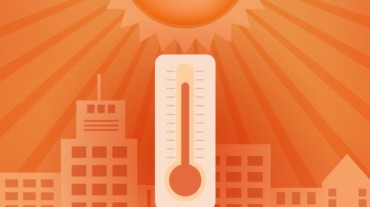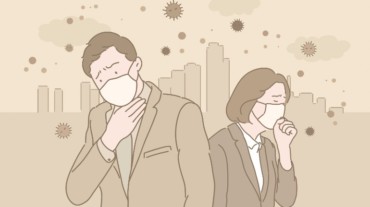“Feeling hot, hot, hot!” can be the anthem of the season! A sizzling 49.2 degree Celsius was the maximum temperature recorded in Mungeshpar, along Delhi’s border with Haryana, in India on Sunday. The heat wave has added heat to the need for attention towards preventive and precautionary measures.
Summer came early to India this year in March, and certain reports claimed the month was the hottest in 122 years. The situation got worse in April, with extreme weather conditions prevailing throughout the month. In May, the heat wave is getting worse by the day.

While the hot winds and sun remain a concern from the health point of view, the high temperature accompanied by high levels of air pollution, can make it worse.
According to Dr Rajesh Kesari, Diabetologist and Physician and Expert ASSOCHAM – Illness to Wellness, Delhi-NCR residents did not receive even a single day of ‘moderate’ or ‘satisfactory’ air in April.
“For 28 days, people breathed ‘poor’ air, and for the remaining two days, they endured ‘very poor’ air. This combination of heat and pollution can be disastrous for health,” Dr Kesari tells Health Shots.
The hot weather conditions along with high pollution levels can be detrimental to health.
“It must be remembered that the Covid-19 pandemic isn’t over, and hospitalization can put a person at a higher risk of catching infections. Taking all possible precautions and protecting oneself from heat and pollution should be the top priority among people, especially for those living in Delhi-NCR,” adds Dr Kesari.

How to avoid health issues in heat wave
Exposure to excessive heat can lead to immediate health problems such as severe dehydration, heat stroke, heat exhaustion, cramps, sun burn and rashes.
While most heat-related illnesses are preventable, all genders and age groups fall prey to them as they have to step out, sometimes for long hours, for employment, education, and other daily necessities.
Even though extreme heat troubles everyone, people with fever, obesity, mental illness, and heart diseases are more susceptible to heat-related ailments.

While it is practically impossible to completely avoid hot weather, one can take the following measures to prevent illness:
1. Stay hydrated and drink plenty of water or lemonade.
2. Eat healthy, eat light
3. Wear a cap/hat or use an umbrella when stepping out in the sun.
4. Cover your ears, arms, and legs
5. Go for clothes in thin, light fabric
In the event of a heat stroke or a heat exhaustion episode, move to a cool place, loosen your clothes, and sip water.
While most symptoms subside within a few minutes, in case of longer lasting symptoms or worsening health condition, it is advisable to immediately take medical help.

The menace of air pollution
According to the World Health Organization, India’s air quality has deteriorated substantially over the last two decades. From the 1990s to 2017, nearly 97 percent of the country’s population has been exposed to harmful levels of PM2.5, leading to pollution-related mortality increasing 2.5-fold.
Air pollution is also the second-leading cause of sickness in the country, accounting for nearly 10 percent of the overall disease burden. A recent ASSOCHAM report cities air pollution to be one of the main factors leading to the high prevalence of non-communicable diseases such as heart disease, stroke, chronic obstructive pulmonary disease, hypertension, and lung cancer in India.
The study covers air pollution in totality, including household pollution, outdoor pollution, and pollution at workplace. In Delhi and NCR, where the air is polluted almost throughout the year, residents are at a higher risk of catching severe diseases, some of which can be fatal.
Infants and young children, elderly and people with lung diseases such as asthma, chronic bronchitis, emphysema, and chronic obstructive pulmonary disease are particularly susceptible to pollution-related illness.
Some basic measures that can come in handy when dealing with high air pollution include:
1. Wear a mask when stepping out
2. Check air quality index before going to the park for exercise
3. Stay away from dust and smoke
4. Consider investing in air purifiers
Source link




